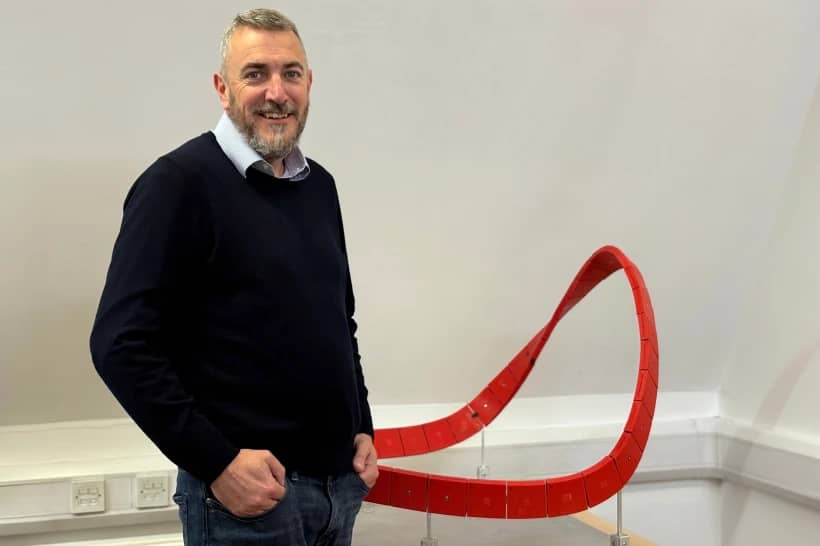LEICESTER, United Kingdom – A scandal involving a British anti-poverty charity in Haiti has impacted CAFOD, the Catholic international aid agency for England and Wales.
An investigative series by The Times, an English newspaper, revealed Oxfam staff used prostitutes in “Caligula”-like sex parties while providing aid in Haiti in 2011. The newspaper alleges some of those prostitutes may have been underaged.
Oxfam is a global international aid agency founded in Oxford in 1942. It now consists of 19 separate international committees, and is one of the largest aid federations in the world.
It was revealed that one of the persons accused of sexual misconduct later began working for CAFOD in the Philippines, after leaving Oxfam.
“CAFOD has a zero-tolerance approach to misconduct breaching our Code of Behavior, including fraud, abuse, intimidation and other acts,” said Chris Bain, the director of the Catholic agency.
He said in a statement CAFOD has “robust safeguarding and whistle-blowing policies and practices in place to ensure that vulnerable people are protected,” but said the organization is committed to “regularly reviewing our procedures.”
The crisis has hit Oxfam hard: Penny Lawrence, Oxfam’s deputy chief executive, resigned after saying she took “full responsibility,” but the agency is facing calls to have its UK government funding cut. The European Union has also said its funding to the charity could be at risk if new safeguards are not put into place, and corporate donors are also asking questions about the aid agency.
Beginning on Friday, The Times has been running daily reports on the story, noting that in the aftermath of Haiti’s devastating 2010 earthquake, Oxfam’s director for the country, Roland van Hauwermeiren, used his villa – rented by Oxfam – to host sex parties with prostitutes which involved other Oxfam staff.
The newspaper alleges the charity had been informed of allegations van Hauwermeiren had committed misconduct while leading a mission in the African nation of Chad in 2006, before he was put in charge of operations in Haiti.
“At that time the use of prostitutes was not explicitly contrary to Oxfam’s code of conduct – bringing Oxfam into disrepute in any way abusing people who may have been beneficiaries of course was,” Mark Goldring, chief executive of Oxfam GB, told the BBC. “There was an exploration of how should the organization respond but we didn’t act on it.”
The Times reported on Feb. 10 that a current CAFOD employee was named as an Oxfam staff member who had been working in Haiti in 2011 and was accused of misconduct.
Bain said CAFOD was not aware of the allegations against the employee, and that he received two letters of reference at the time of his recruitment.
“Following concerns raised in this article, the staff member has been put on leave while we examine the issues raised and follow our Code of Behavior protocol to determine next steps,” Bain said.
Bain said CAFOD is joining an initiative with other UK-based overseas development agencies and the Charity Commission, the government department that regulates registered charities in England and Wales, to strengthen cross-sector information sharing and protection of vulnerable people.
Such information sharing is especially important in the international aid sector. Many NGOs work in disaster areas and fund short-term projects, meaning staffing can be fluid, with workers moving from agency to agency. Different aid groups often must rely heavily on the recommendation letters received from previous employers when making hiring decisions.
“It is disheartening that the actions of a few unscrupulous aid workers may undermine trust in the life-saving work done by overseas development and humanitarian agencies, including CAFOD, working alongside some of the poorest communities and helping them live life to the fullest,” Bain said. “Our commitment to them is steadfast, and we will continue to vigilantly prevent abuse by aid workers from happening, and ensure swift action when concerns are raised.”
Another Catholic international aid agency, Trócaire in Ireland, said it was “horrified” by the recent reports from Haiti.
“Trócaire has a zero-tolerance approach to sexual exploitation and abuse of any person,” said Niamh McCarthy, the agency’s communications officer.
She told Crux in an email exchange that all staff are required to sign safeguarding policies and are also made aware of their mandatory duty to report any incident or allegation of exploitation or abuse, and that Trócaire does regular auditing, training and monitoring.
McCarthy noted that humanitarian workers often put themselves at great risk in order to do their work and are “motivated by a desire to help people in crisis situations.”
“We sincerely hope that public confidence in the overwhelming majority of people who engage in this life-saving work with professionalism and courage is not diminished,” she told Crux. “That would be a terrible outcome for the millions of people throughout the world who face crisis and rely on outside help.”















